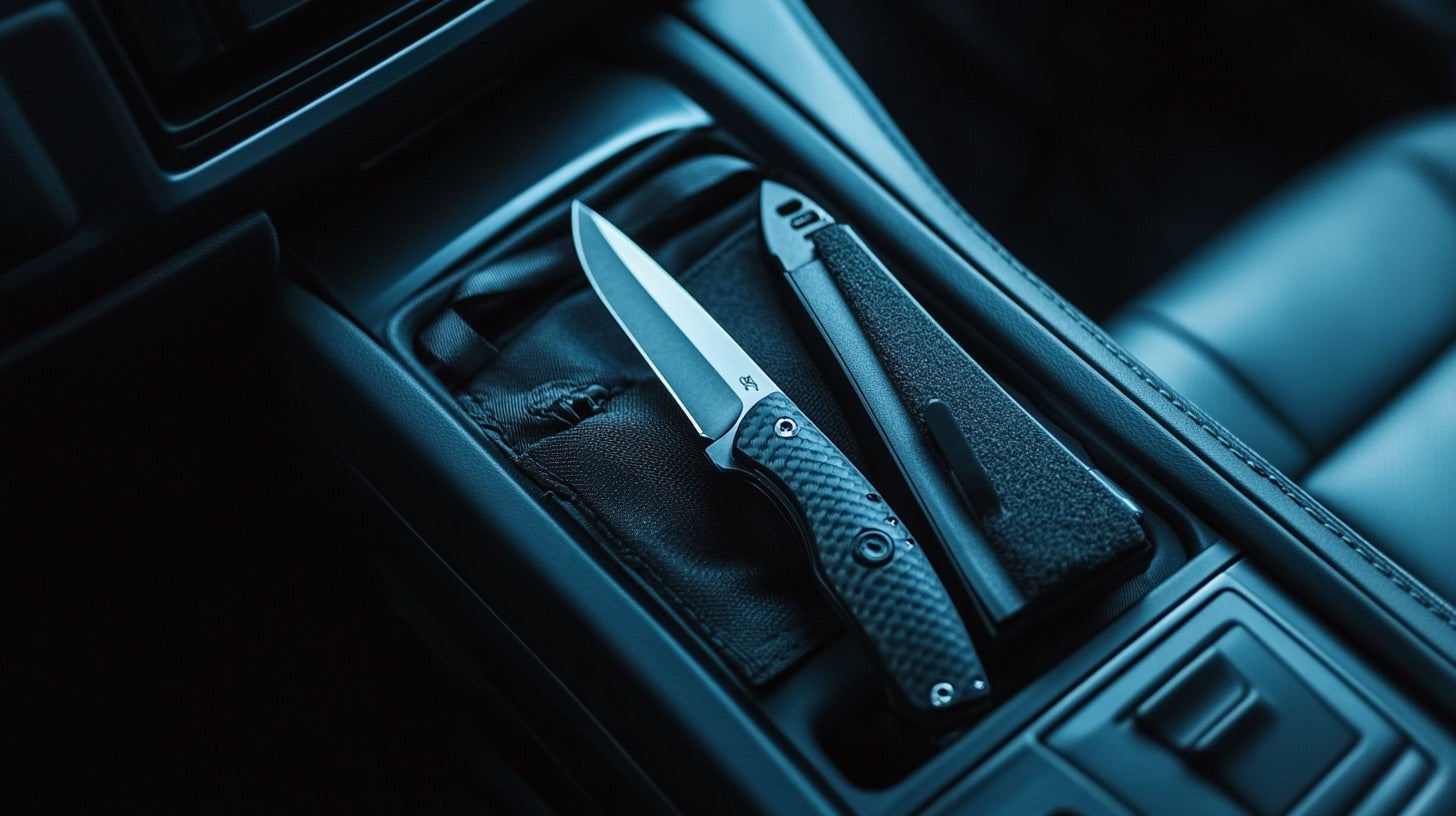Finding yourself caught with a knife in your car can be a daunting situation, especially under Michigan’s complex concealed weapons (CCW) laws. Whether intentional or accidental, understanding the legal landscape around knives and weapons in Michigan is crucial. Getting caught in possession of a knife may not seem as serious as carrying a firearm, but you could still face significant legal consequences if the knife is considered a concealed weapon under state law.
First things first, the state of Michigan has very specific language about what qualifies as a weapon, and there are severe penalties in place if you get it wrong – especially if you are transporting the weapon in your vehicle. This blog will walk you through what Michigan law says about carrying a knife, what happens if the knife is considered “concealed,” and more importantly, what are your rights if pulled over and found with a knife in your car.
What Does Michigan Law Say About Knives?
Unlike firearms, knives are in a bit of a gray area in Michigan law. You might legally buy and have a knife for innocent purposes, like for work or outdoor activities, but the line becomes blurry when you carry that same knife in your car or on your person. Michigan law prohibits carrying certain types of knives that are considered "dangerous weapons." For instance, carrying a double-edged knife, a switchblade, or even a dagger could land you in legal trouble.
However, Michigan law does allow you to possess knives that are used as tools, such as a pocketknife or hunting knife, but those items must be “non-threatening” or designed for utility purposes. The key here is the knife’s design and intent. A fixed blade or a knife that's primarily used for camping or cutting rope might be legal. But if that same knife is found concealed on your person or in your car, that's when problems arise.
What Qualifies As “Concealed” Under Michigan Law?
The real issue here isn't simply having a knife, but how you are carrying it. Michigan’s concealed weapons law applies very broadly. If the knife is partially or fully hidden from plain view, it may be considered concealed. For instance, if the knife was in the glove box, under a seat, or in a bag that is not immediately visible, this could be classified as “concealed” under Michigan law.
Remember, the mere fact that you have the item isn't necessarily enough to convict you of CCW, but the prosecutor must show certain elementsto prove guilt. Namely, you must have known that you had the knife or weapon in your vehicle, and it must have been concealed in some way where it wasn't immediately visible to others. Even partial concealment, such as leaving the handle of the knife sticking out from underneath a jacket or seat, could still satisfy the legal requirement for "concealment."
What Should You Do If Caught?
If you're stopped by police and they claim you have a concealed knife in your vehicle, don’t panic. The first thing you should do is stay calm and avoid making any sudden admissions. You have rights, even when faced with a CCW charge, and there could be defenses available.
One common defense is that you didn’t know the knife was in the vehicle at the time or that the knife wasn't concealed in the legal sense. Another powerful defense can come into play if the knife was being “openly carried,” meaning it was visible and not hidden away. This is an affirmative defense, and if successful, it could potentially lead to the charges being dropped entirely.
Additionally, Michigan law allows proper transportation of knives for lawful purposes, such as camping, hunting, or employment-related work. So, if the knife was being stored in an appropriate manner and for a legitimate reason, you may have a valid defense.
Get Legal Help Right Away
Don’t let the complexity of Michigan’s concealed weapon laws work against you. If you or someone you know has been caught with a knife in your car under questionable circumstances, it is critically important to contact a criminal defense lawyer who knows Michigan’s firearm and weapon laws inside and out.
A seasoned attorney can examine the details of your case, determine if your knife was legally possessed, and fight back against the prosecution’s attempts to charge you with CCW. Just as important, having legal representation can help ensure that all of your constitutional rights are protected during the process.
At Boria Law, we’ve successfully defended clients in CCW cases and reduced or even dismissed charges, especially when the weapons involved were non-threatening knives or tools. We know the law and are ready to deploy effective defense tactics so that you can avoid the harsh penalties associated with a CCW conviction in Michigan.
Have questions or need to discuss your case? Call Aaron J. Boria today at (734) 453-7806 for a free consultation. We're here to help you navigate Michigan's complex weapon laws and protect your rights every step of the way.


Share:
Defending a Friend in a Fight: Understanding the Legal Risks of 'Helping Out'
Social Media Evidence in Criminal Cases: Protect Yourself from Incriminating Posts